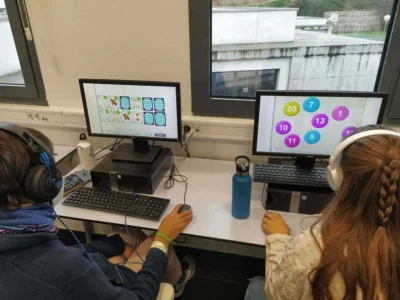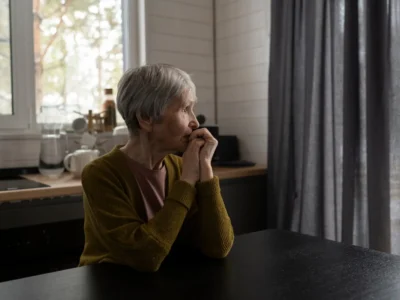After previously addressing the details of the comprehensive program for children with hydrocephalus and spina bifida, promoted by the NED Foundation, and the role of NeuronUP as the main resource in PsicoNED, on this occasion we present the program from the perspective of innovation and research.
Pediatric hydrocephalus: an urgent public health problem
Hydrocephalus is a serious public health problem, especially in low- and middle-income countries where access to quality healthcare services is limited. This neurological disorder, which is characterized by the excessive accumulation of cerebrospinal fluid in the brain, affects thousands of children worldwide and, if not properly treated, can cause permanent brain damage and even death. In the pediatric context, hydrocephalus usually appears congenitally or as a consequence of infections and other conditions.
Without appropriate intervention, children with hydrocephalus may face serious limitations in their cognitive, motor and emotional development, which significantly affects their quality of life. Unfortunately, in many regions of the world, this specialized care is not available or is insufficient, leaving thousands of children without the necessary support to achieve comprehensive development.
A clear example of this situation is found in Zanzibar (Tanzania), where until a few years ago children with hydrocephalus had no access to neurosurgical services or specialized psychological care.
Since 2008, the NED Foundation has worked through clinical and training cooperation to cover these surgical needs. However, neuropsychology is a key aspect to ensure comprehensive rehabilitation, and it was not until the creation of the PsicoNED project in 2023 that the first neuropsychological care program in the region began to be offered.
The PsicoNED program is focused on neuropsychological assessment and intervention, family care, training of local professionals and research in this field. The aim is not only to intervene directly through neurorehabilitation sessions, but also to develop the scientific knowledge necessary to guarantee the continuity and quality of psychological practices in this context in the long term.
To this end, PsicoNED relies on a pioneering line of research on the neuropsychological and psychological approach to pediatric patients with hydrocephalus and spina bifida, in collaboration with other entities that fund some activities such as the International University of Valencia (VIU).
PsicoNED: pioneers in neuropsychological care in Zanzibar
Research in PsicoNED
Since its creation, PsicoNED has promoted collaboration with academic institutions such as the International University of Valencia (VIU) to create a robust research framework that guides and improves neuropsychological assessments and interventions.
Thanks to this internal research project, the design of an evaluation protocol for pediatric patients with hydrocephalus and spina bifida residing in Unguja, Zanzibar began. A first step that made a difference and made possible the implementation of subsequent projects, such as the one granted in 2023 with the aim of developing a cognitive stimulation program based on the NeuronUP tool.
Specifically, the specific objectives of the present project are:
- Design a neuropsychological intervention protocol that focuses on the stimulation of higher cognitive functions, addressing areas such as attention, memory, executive functions and language skills.
- Assess the program’s applicability in a pilot sample representative of the pediatric population with hydrocephalus in Zanzibar, allowing the program to be adjusted and optimized before large-scale implementation.
- Analyze the cognitive evolution of patients after the intervention, comparing their progress with a previously established baseline. This will allow identification of the factors that modulate this evolution and adjust interventions more precisely to the individual needs of each child.
The research design is longitudinal observational, which means a detailed follow-up of the children participating in the program will be carried out over time.
The target sample will consist of boys and girls between 6 and 12 years old diagnosed with hydrocephalus and a mild to moderate level of cognitive impairment. These children are cared for at the House of Hope, the socio-health intervention and neurorehabilitation center managed by the NED Foundation where the PsicoNED program is carried out.
This project is expected to have a positive impact on the quality of life of the children with hydrocephalus who participate in it. Through the cognitive stimulation program, the aim is to improve their cognitive and emotional capacities, which in turn will promote their social and educational inclusion. In addition, by training local professionals to implement this type of intervention, the project will contribute to the sustainable development of psychological services in Zanzibar.
This project is aligned with the Sustainable Development Goals (SDGs) of the 2030 Agenda, particularly Goal 3, related to health and well-being. However, it also has a collateral impact on other SDGs, such as reducing inequalities (SDG 10) and promoting quality education (SDG 4).
The research developed within the framework of this project is also linked to the VIU-NED Chair in Global Neuroscience and Social Change of the NED Foundation and the Vice-Rectorate for Research, Transfer and Internationalization of VIU, which aims to promote research and the transfer of knowledge in neuroscience at a global level. This collaboration has enabled progress in this field, providing a space for knowledge exchange and the creation of scientific collaboration networks.
In summary, research is a fundamental pillar of the PsicoNED project, as it provides the basis for the development of clinical practices and intervention protocols that respond to the specific needs of the local population.
Future challenges: adaptation and validation of neuropsychological tools and protocols
One of the main challenges in applied neuropsychology research in contexts like Zanzibar is the lack of assessment tools adapted both culturally and linguistically.
As part of the project, work is underway to develop an intake protocol that contemplates not only the assessment of patients’ neurodevelopment, but also their socio-family context and other relevant factors that may influence their development. To achieve this, it will be essential to adapt the evaluation protocols used in other studies to the cultural and linguistic reality of Zanzibar.
Therefore, the design of neuropsychological assessment batteries suitable for the local context, which are culturally sensitive and consider the linguistic particularities and the educational environment of the children, is an area of interest for PsicoNED research. At least one medium- to long-term objective that the team will pursue in public and private research funding calls is to, over time, generate other lines of research and action that will expand as resources and knowledge in the field of psychology in Zanzibar are strengthened.
Conclusion
The PsicoNED project is making significant progress in neuropsychological care for children with hydrocephalus in Zanzibar, not only through direct intervention but also through research and the development of protocols that will help improve these patients’ quality of life in the long term. Through the training of local professionals and the development of context-adapted research, PsicoNED is laying the foundations for the future of neuropsychology in this region.
Moreover, PsicoNED is committed to raising awareness about neurodevelopmental disorders, disability and other conditions that require specialized attention from services and professionals. Therefore, research is an important pillar from which to promote previous actions so that disorders with social and health emergencies such as hydrocephalus are addressed from a multidisciplinary and scientific approach with evidence and social impact.
Don’t miss other related content about the Zanzibar project:
“This article has been translated. Link to the original article in Spanish:”
Innovación e investigación en el programa PsicoNED






 Emotional processing in people with autism spectrum disorder (ASD)
Emotional processing in people with autism spectrum disorder (ASD)
Leave a Reply